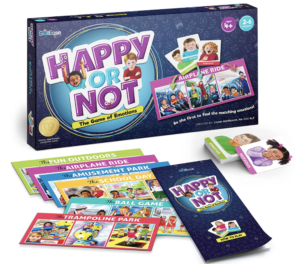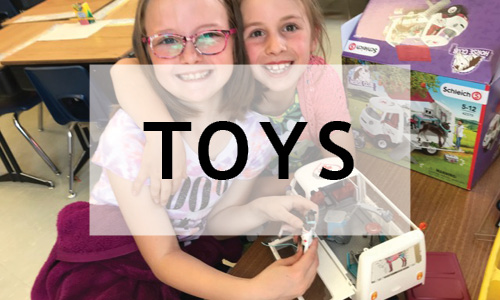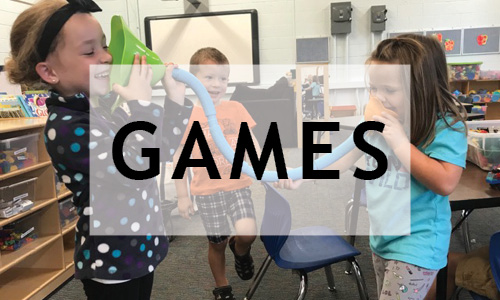
Children experience all of the same emotions that adults do. However, they aren’t always as equipped to talk about them. It can be joyous to experience the easy feelings but also feel tricky to navigate the hard feelings. Helping your child build their emotional vocabulary and emotional quotient (EQ) can improve self-regulation and self-confidence.
Happy Or Not is a game of emotions. Prior to game play, naming emotions on the cards and boards is advised, especially for younger kiddos. Children should first learn key facial features and body language that determine feelings. This information is included in the game manual, making it an excellent resource for parents and caregivers to talk about identifying one’s own feelings and understanding others’ emotions.
It includes 6 game boards and 54 Emotion cards. Each player chooses a board that consists of 3 different pictures within a scene, for example school, a baseball game, and an amusement park. Players take turns revealing the top card in the deck and try to match the emotion on their board, calling it out. The person to match all the emotions on their board first wins!
“Scared!…. Look at his big eyes. His mouth is back. He’s doing this [mimics face]” – 4 year old.
There are 18 most important emotions to understand. Teaching what these are and what they might look like builds self-awareness in children and can help improve social skills by identifying them in others. This can provide improved self-regulation in children by being able to stop and pause, as needed, to manage conflict and cope with difficult scenarios as their environment changes.
Happy Or Not creates a clear way to teach your child about feelings and encourage social and emotional growth. Players were excited to shout out different emotions as cards were revealed to try to match them. We used it as a conversation starter to teach how to respond or what to do in a social situation. Playing Happy Or Not can create self-confidence in social settings, improve your child’s self-regulation, and further develop their EQ.
Available on Amazon



